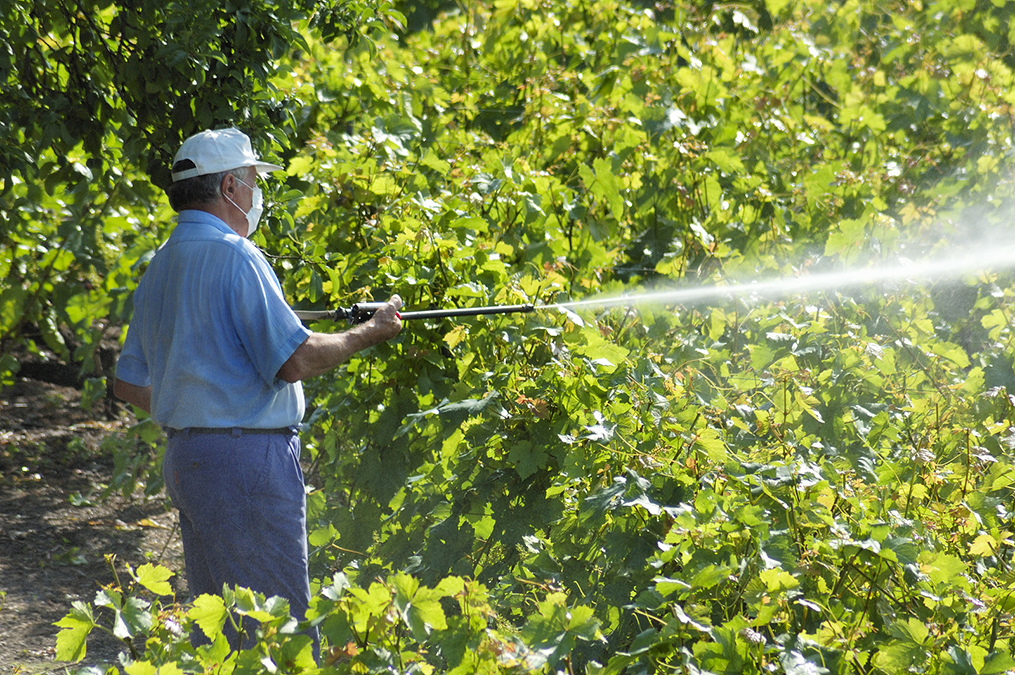 A new study published in the American Journal of Industrial Medicine reveals that those directly exposed to a common type of chemical are almost twice as likely to develop chronic bronchitis than the rest of us.
A new study published in the American Journal of Industrial Medicine reveals that those directly exposed to a common type of chemical are almost twice as likely to develop chronic bronchitis than the rest of us.
We’re, however, all exposed to this chemical in lower doses, which makes it likely that this is one of the contributing factor if you suffer chronic bronchitis.
Pesticide spraying is an integral part of modern agriculture, ensuring crop health and productivity. However, this practice is not without its risks.
Pesticide spraying personnel often face health hazards such as pesticide poisoning, allergies, skin rashes, asthma, and chronic bronchitis. Recognizing these dangers, a research team aimed to assess the effectiveness of aerial pesticide application via drones in mitigating these risks.
The study included 2,268 pesticide spraying operators who had passed Taiwan’s national certification examination between 2010 and 2020. These operators were categorized into two groups: 1,651 ground-based field crop operators and 617 aerial pesticide spraying drone operators.
To establish a comparison group who had not been in contact with pesticides at all, they selected 2,463 farmers from the Farmers’ Health Insurance database.
The scientists then used data from the National Health Insurance Research Database to identify cases of possible pesticide-related diseases among all their subjects so they could compare all three groups.
The results of the study were drastic. Drone operators exhibited significantly reduced risks of several health issues when compared to their ground-based counterparts.
-
1. Drone operators had a 60% lower risk of allergic contact skin infection.
2. They had a 42% lower risk of other skin infections.
3. The risk of developing asthma was 73% lower for drone operators.
4. They also showed a 76% reduced risk of chronic bronchitis.
These statistics were adjusted for factors like age, sex, working areas, and licensing years, ensuring a fair comparison across different demographics.
Interestingly, when drone operators were compared to the matching farmer controls, no significant differences were observed, indicating that the reduced risk factors were specifically associated with the method of pesticide application rather than other occupational factors.
This study is not just relevant for those spraying pesticide. If you live close to agricultural land, or even if you consume the food that has been sprayed with pesticide, you may be at increased risk of chronic bronchitis.

 Overcoming IBD
Overcoming IBD Multiple Sclerosis
Multiple Sclerosis Banishing Bronchitis
Banishing Bronchitis Gum Disease Gone
Gum Disease Gone Overcoming Onychomycosis
Overcoming Onychomycosis Neuropathy No More
Neuropathy No More The Prostate Protocol
The Prostate Protocol Brain Booster
Brain Booster
 Ironbound
Ironbound
 Solution for Shingles
Solution for Shingles
 The Bone Density Solution
The Bone Density Solution
 The Ultimate Healing Protocol
The Ultimate Healing Protocol
 The Parkinson's Protocol
The Parkinson's Protocol
 The Chronic Kidney Disease Solution
The Chronic Kidney Disease Solution
 Overthrowing Anxiety
Overthrowing Anxiety The Fatty Liver Solution
The Fatty Liver Solution The Hypothyroidism Solution
The Hypothyroidism Solution
 The End of Gout
The End of Gout The Blood Pressure Program
The Blood Pressure Program
 The Oxigized Cholesterol Strategy
The Oxigized Cholesterol Strategy
 Stop Snoring And Sleep Apnea Program
Stop Snoring And Sleep Apnea Program
 The Arthritis Strategy
The Arthritis Strategy The Vertigo & Dizziness Program
The Vertigo & Dizziness Program The 3-Step Diabetes Strategy
The 3-Step Diabetes Strategy Hemorrhoids Healing Protocol
Hemorrhoids Healing Protocol The Erectile Dysfunction Master
The Erectile Dysfunction Master Weight Loss Breeze
Weight Loss Breeze The IBS Program
The IBS Program The Insomnia Program
The Insomnia Program The Migraine and Headache Program
The Migraine and Headache Program The Neck Pain Solution
The Neck Pain Solution The Menopause Solution
The Menopause Solution The Ejaculation Master
The Ejaculation Master The TMJ Solution
The TMJ Solution The Acid Reflux Solution
The Acid Reflux Solution The Fibromyalgia Solution
The Fibromyalgia Solution The Psoriasis Strategy
The Psoriasis Strategy